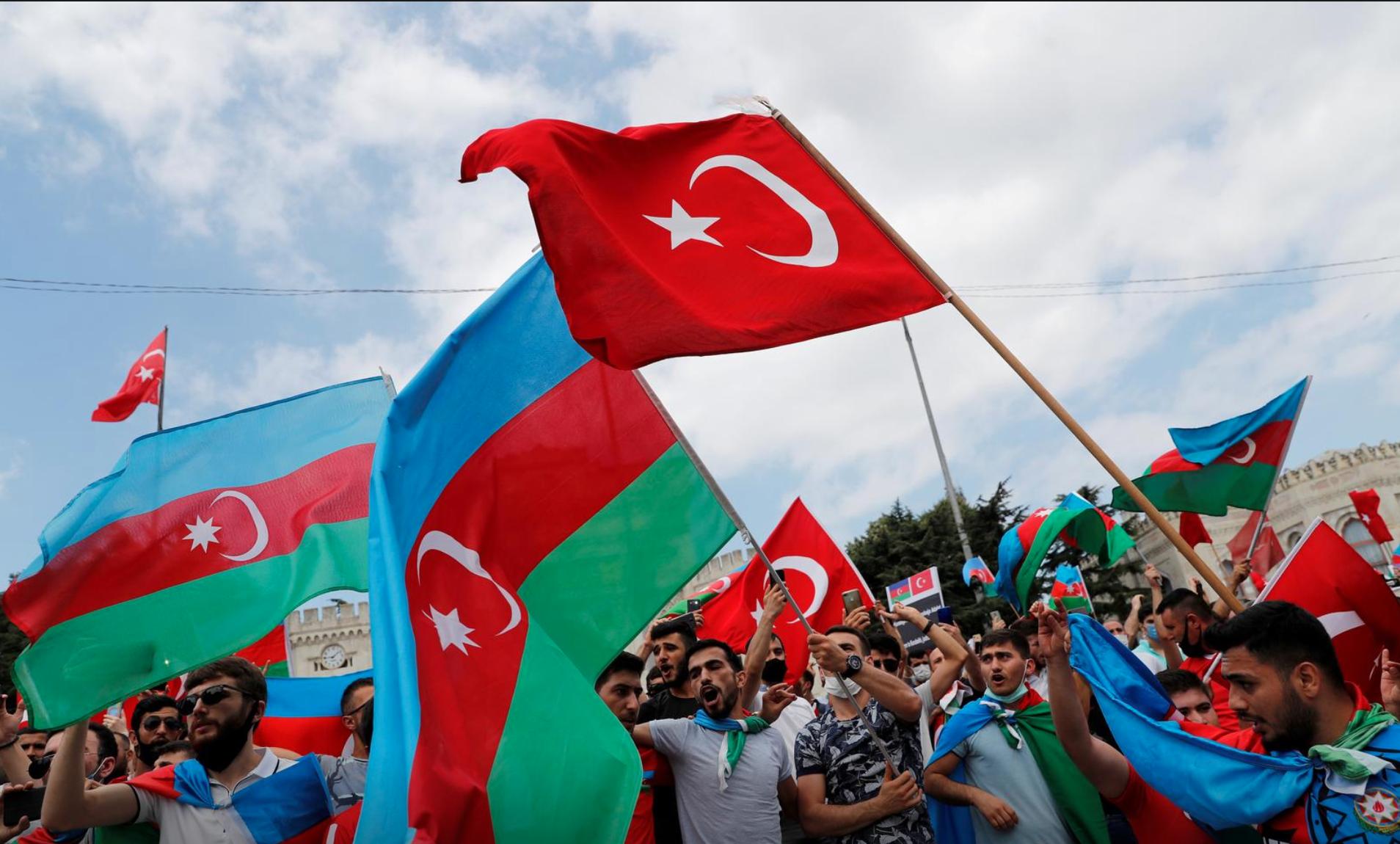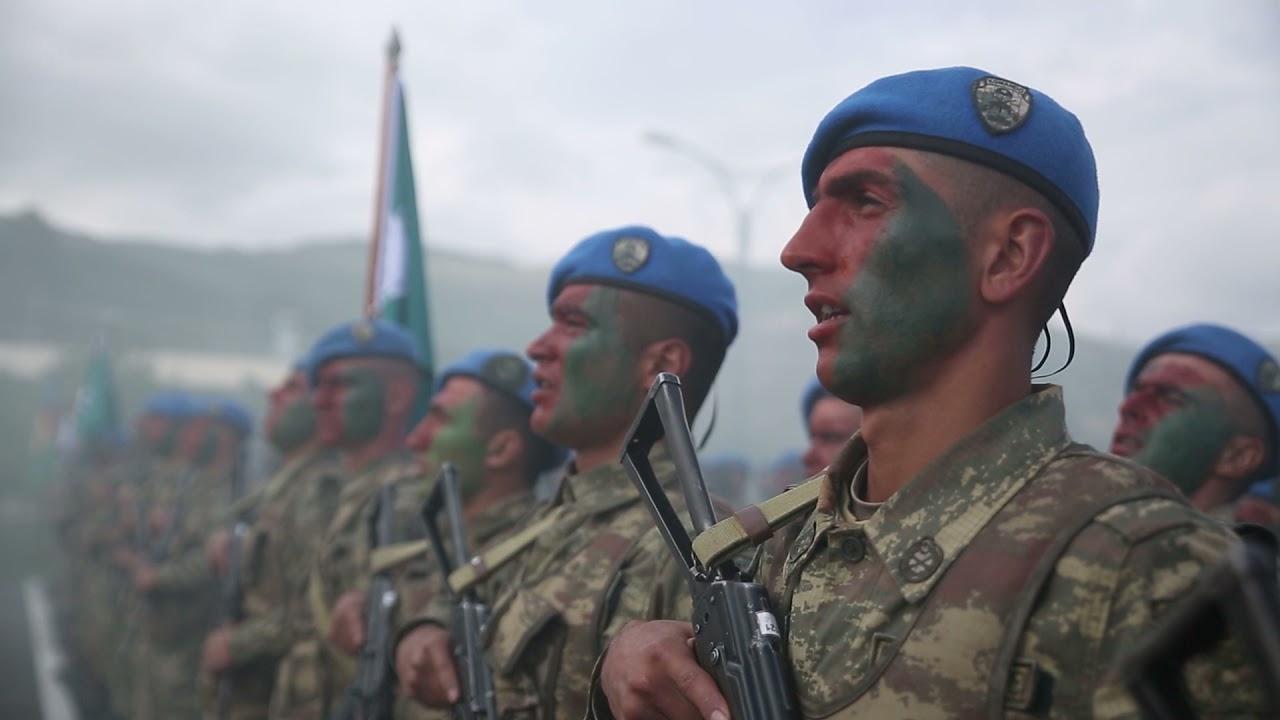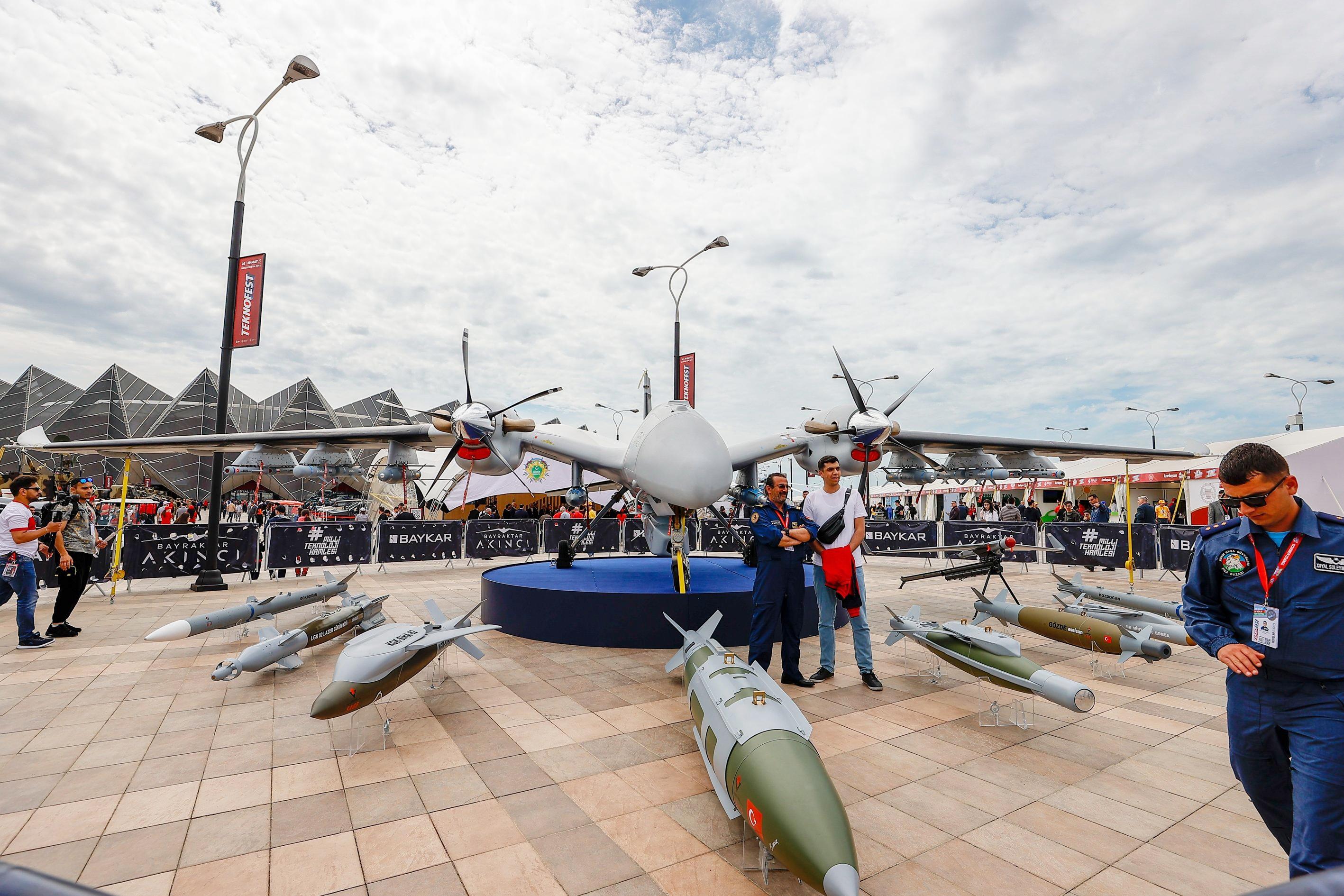Azerbaijan, Türkiye mark first anniversary of signing strategic Shusha Declaration The document that brought alliance to all-new levels
The relations between Azerbaijan and Türkiye reached an all-new level with the signing of the Shusha Declaration in the Shusha city of Azerbaijan on June 15, 2021. One year has passed since the two countries have further cemented their mutual ties through this strategic alliance pact.
The signing of the Shusha Declaration followed Azerbaijan’s victory over Armenia in a 44-day war in the Karabakh region in 2020. Türkiye has put its political and moral weight behind Azerbaijan’s struggle for liberating its territories from Armenian occupation since the very first day of the hostilities. The weapons purchased from the country, including Bayraktar combat drones have also given the Azerbaijani military an upper hand against the Armenian forces.
Both during the war and after it, the Azerbaijani authorities have repeatedly thanked their Turkish counterparts, in particular President Recep Tayyip Erdogan, for Ankara’s irreversible support that was key in ending the three-decades-old occupation of the historical Azerbaijani lands.
The post-war developments in the region set the grounds for stronger cooperation, interaction, partnership, and alliance between the two nations, which share common ethnic, historical, cultural, religious, and linguistic values. The Shusha Declaration was the pinnacle of the efforts of Baku and Ankara aimed at creating an unshakeable basis for mutual ties in multiple spheres varying from defence to economy, energy, trade, diaspora, media, and other areas of mutual interest.
“Every issue reflected in it [Shusha Declaration] is of great importance. I would like to highlight two issues among them. First, is the issue of cooperation in the field of defence. The issues of the defence industry and mutual military assistance are reflected in this Declaration. This is a historic achievement. We are showing again that we will always be together. We will continue to ensure each other's security, just as Turkey and Azerbaijan have been together on all issues so far. This will continue to be the case," Azerbaijan’s President Ilham Aliyev said at the ceremony for signing the treaty in Shusha on June 15, 2021.
The parliaments of Azerbaijan and Türkiye ratified the Shusha Declaration in February 2022 putting the document into force.

Defence cooperation is put under a bigger spotlight in the document since the outcomes of the war between Armenia and Azerbaijan led to shifts in the geopolitical landscape of the region.
The Shusha Declaration addresses coordinated and joint Turkish-Azerbaijani activities in the event of a threat or aggression by a third state or states against the independence, sovereignty, territorial integrity, inviolability of the internationally recognized borders, or security of each country. Such events, according to the document, lays the groundwork for appropriate initiatives in accordance with the purposes and principles of the UN Charter and necessary assistance to each other in accordance with the UN Charter, as well as coordinated military activities to defend against foreign threats, should be reacted in mutual consultations.
The document also calls for joint efforts to modernize the armed forces of the two fraternal countries, implement measures aimed at strengthening defence capabilities and military security, increase the joint capacity of the two countries' armed forces and establish close cooperation in modern weapons and ammunition management. The Security Councils of the two countries are tasked with holding joint meetings on national security issues and discussing regional and international security developments concerning the national interests of Turkey and Azerbaijan.
Even before inking the Shusha Declaration, President Aliyev said that the Azerbaijani army was being re-established as a “small model” of the Turkish Armed Forces.
Two weeks after the signing of the Shusha Declaration, on June 28, 2021, the Azerbaijani and Turkish Armed Forces teamed up in massive joint military drills. In October 2021, special forces from the two countries and Pakistan attended trilateral army games in Azerbaijan. The Azerbaijani forces joined also the recent “Efes-2022” international exercises which took place from May 9 to June 9 this year.
Meanwhile, in October and November 2021, all-new Commando units of the Azerbaijani Armed Forces were launched in the liberated lands. The formation of the novel special forces units came as part of the upgrade of the national army in line with the Turkish military model. Before joining the army’s new “blue-beret” branch, the commando personnel have been through weeks-long “Commando preparation” courses in Turkey.

Azerbaijan and Türkiye also explored the new vectors of the military-technical cooperation in the TEKNOFEST Aerospace and Technologies Festival in Azerbaijan in May 2022. Turkish defence manufacturers demonstrated their latest innovations and products at the festival which attracted more than 300,000 visitors. On the sidelines of the hi-tech gala, officials from numerous Turkish and Azerbaijani institutions and organizations inked cooperation documents, which addressed the exports of cutting-edge defence products and expertise to Azerbaijan. According to various media reports, Azerbaijani authorities revealed their interest in the purchase of T-129 ATAK helicopters from Türkiye.

In the meantime, the two countries have been jointly producing various defence products, including top-notch communication devices, four types of pistols, such as MP5 pistols, and other weapons. Baku and Ankara also intend to jointly manufacture unmanned aerial vehicles (UAV) and combat aircraft. Turkish Defence Industry Minister Ismail Demir said relevant negotiations were underway with the Azerbaijani authorities to team up for the production of aircraft. Selcuk Bayraktar, CEO of the Turkish Baykar Technology Company, which produces Bayraktar and AKINCI combat drones, also confirmed the interest in developing and manufacturing the cutting-edge aerial devices in Azerbaijan.
Mushvig Mehdiyev








